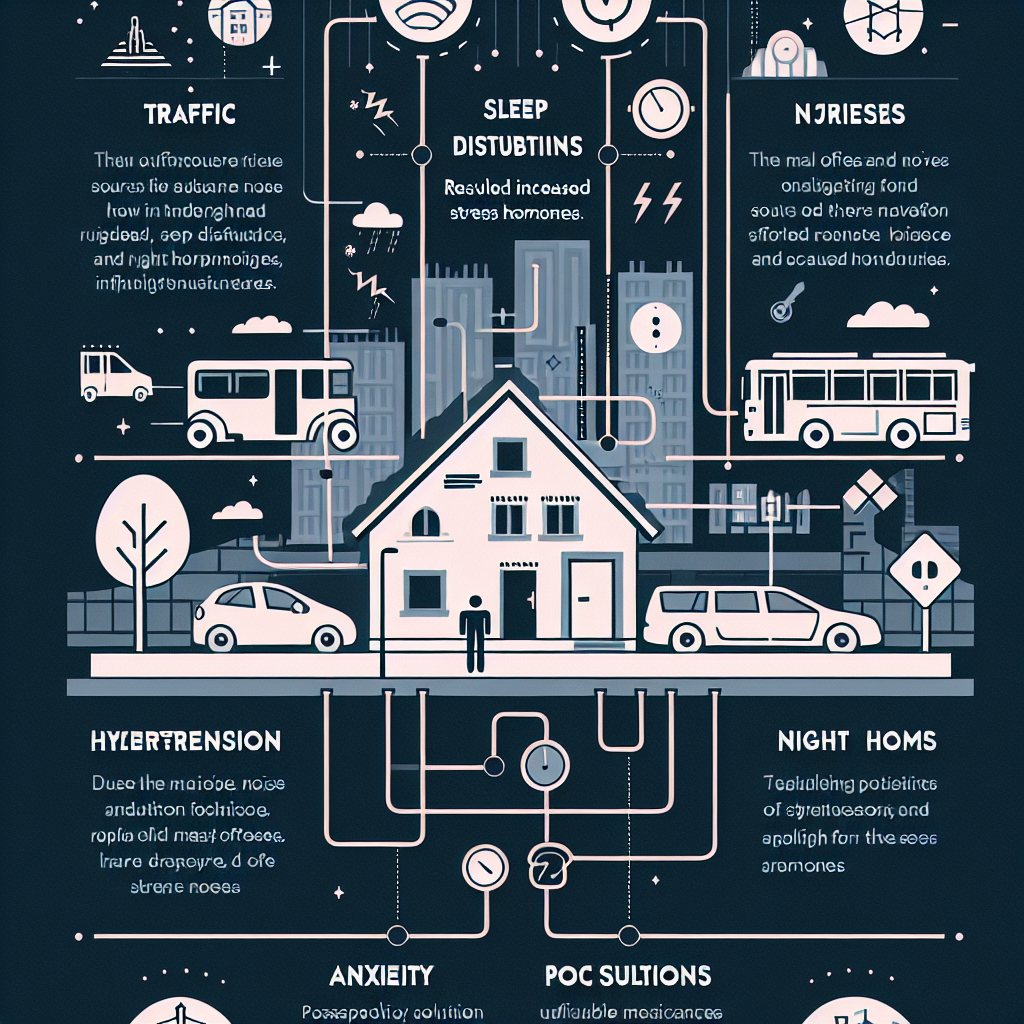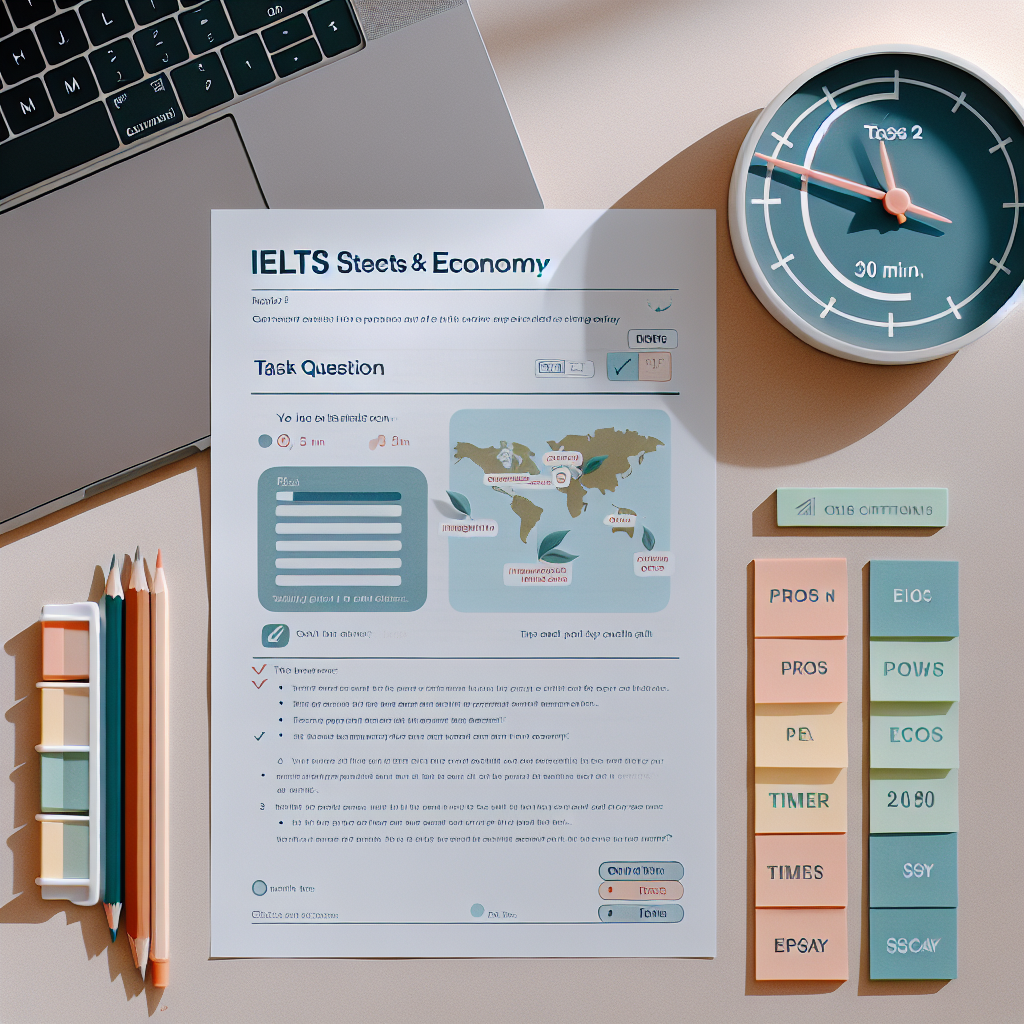Introduction
Reality television has exploded across screens worldwide, which is why exam writers love testing your views on its cultural influence. Topics about media effects, celebrity culture, and youth behavior appear frequently in IELTS Writing Task 2. In this guide, you will learn how to tackle questions on The impact of reality TV on viewers, see three fully written essays (Band 9, Band 7, Band 5-6), and study clear scoring analyses, topic vocabulary, and high-scoring grammar structures. By the end, you’ll know exactly how to plan, write, and self-assess your essay for a higher band.
Table Of Contents
- Introduction
- 1. Question & Analysis
- 2. Band 8-9 Sample Essay
- Band Score Analysis
- 3. Band 6.5-7 Sample Essay
- Band Score Analysis
- 4. Band 5-6 Sample Essay
- Band Score Analysis
- 5. Essential Vocabulary for The impact of reality TV on viewers
- 6. High-Scoring Sentence Structures
- 7. Self-Assessment Checklist
- Conclusion
Verified and commonly reported IELTS Writing Task 2 questions on this topic include:
- Reported by ielts-blog.com: “Reality TV shows are damaging to society. To what extent do you agree or disagree?”
- Listed in IELTS Liz question collections (Media/Television): “Reality TV influences the behaviour of young people. Do you think the effects are more positive or more negative?”
- Reported by test-takers and aligned with British Council/IDP topic trends (Media and Society): “Some people believe reality television should be restricted due to its negative impact. Others argue it inspires ordinary people. Discuss both views and give your own opinion.”
For those who want to explore related themes on media and youth influence, a useful complement is this article. To understand wider cultural effects, you can read the effects of reality TV on societal values.
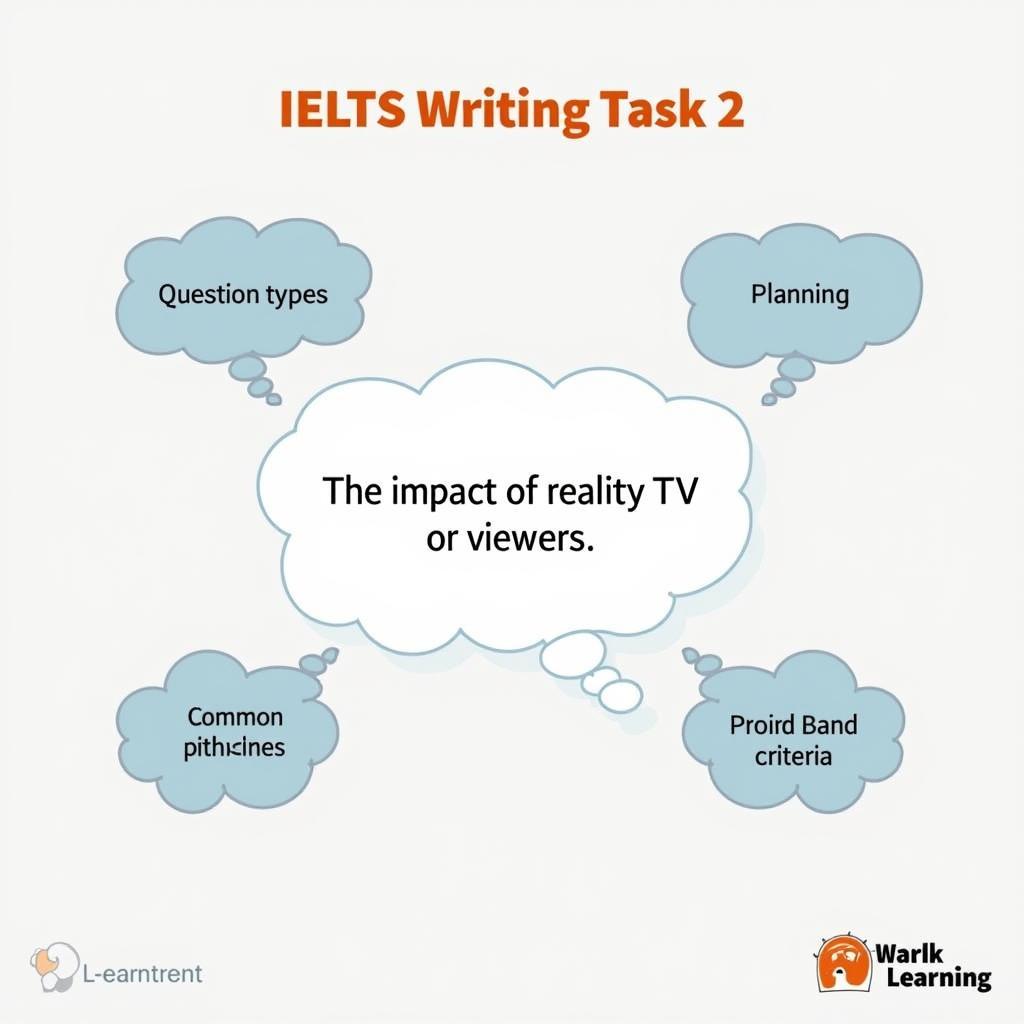 IELTS reality TV task 2 analysis with common pitfalls and strategies
IELTS reality TV task 2 analysis with common pitfalls and strategies
1. Question & Analysis
Some people argue that reality TV has a negative impact on viewers by promoting superficial values and unrealistic expectations, while others claim it motivates ordinary people to improve themselves. Discuss both views and give your own opinion.
- Question type: Discuss both views + opinion. You must present both sides and clearly state your own view.
- Requirements:
- Explain how reality TV may harm viewers (e.g., consumerism, appearance-based judgments, staged drama).
- Explain how it may help (e.g., inspiration, skill-based shows, social mobility).
- Give a clear, balanced position throughout and in the conclusion.
- Key terms:
- “Negative impact” can include mental health, materialism, body image, aggression, time-wasting.
- “Motivates” can mean self-improvement, entrepreneurship, fitness goals, creativity.
- Common pitfalls:
- Ignoring one side or writing an agree/disagree essay instead of discussing both views.
- Overgeneralising with no concrete examples.
- Moralising without analysis.
- Strategic approach:
- Plan 2 main body paragraphs, one for each view, then state your position (balanced or leaning).
- Use specific examples: skill competitions, makeover shows, charity-related formats vs scripted conflicts, toxic comparison on social media.
- Signpost opinions clearly and avoid repetitive language.
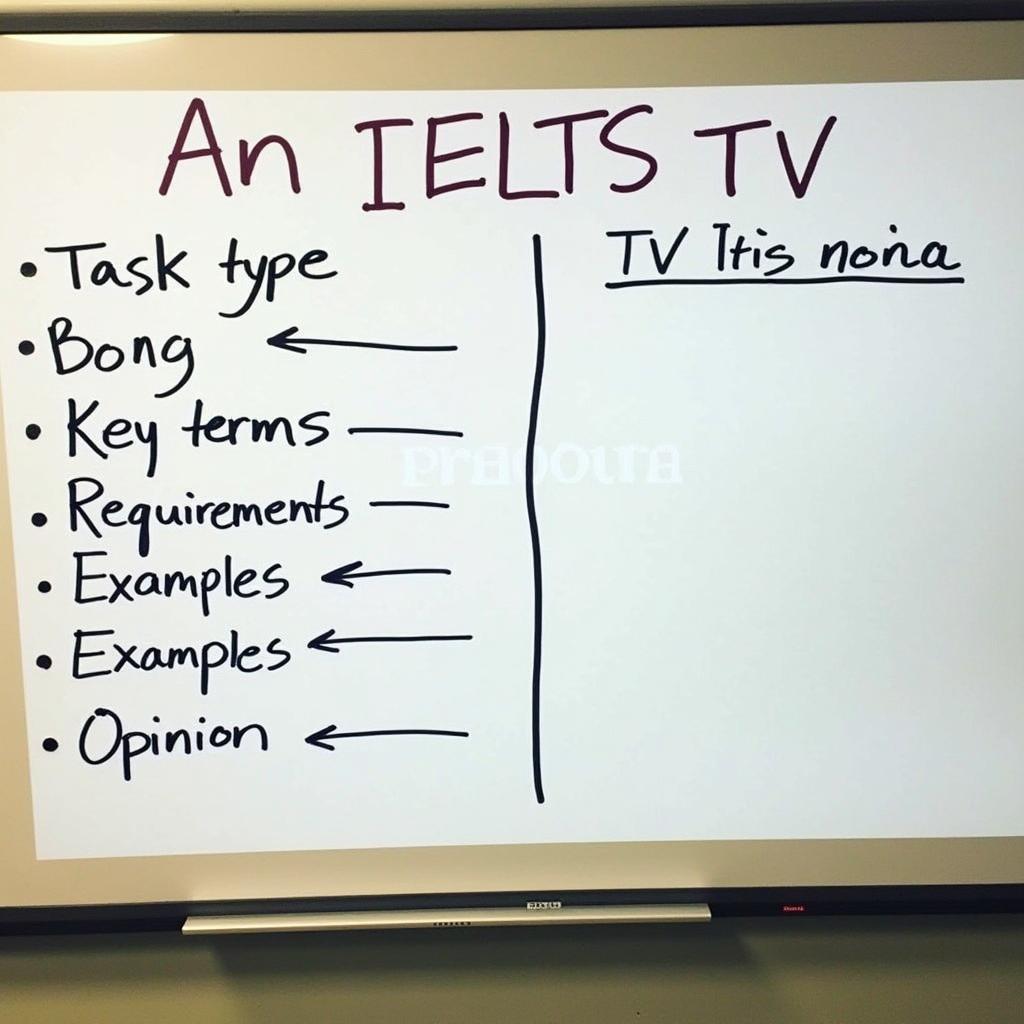 Deconstructing a discuss-both-views IELTS reality TV prompt
Deconstructing a discuss-both-views IELTS reality TV prompt
To see how similar arguments appear in other media-related prompts, you can compare with Are crime novels and TV series popular and what is your opinion, especially the parts about audience psychology and social effects.
2. Band 8-9 Sample Essay
A Band 8-9 response is precise, fully developed, and logically organised, with sophisticated but natural language and minimal errors.
Thesis: Although some reality formats risk glamorising superficial success and emotional manipulation, on balance they can catalyse self-improvement when producers prioritise genuine skill, effort, and accountability.
In the eyes of critics, reality TV’s most pernicious effect is the normalisation of shallow metrics of worth. Contestants are frequently rewarded for looks, wealth displays, or outrage-driven drama, constructing unrealistic expectations about instant fame and effortless prosperity. Young viewers, especially, may internalise the belief that influence matters more than expertise, and that conflict is the fastest route to recognition. Moreover, because many programmes are partially scripted, audiences may mistake curated narratives for typical lives, fueling dissatisfaction and compulsive comparison.
Yet dismissing the entire genre overlooks formats that demonstrably elevate viewers. Skill-based competitions—cooking, design, entrepreneurship—model deliberate practice, resilience, and constructive feedback. When shows transparently reveal learning curves and setbacks, they motivate ordinary people to pursue tangible goals, from healthier eating to small business ventures. Human-interest series also democratise aspiration: they platform diverse participants, illustrating that talent and grit can transcend background. Crucially, the positive impact hinges on editorial responsibility: clear disclosure of staging, expert mentorship rather than humiliation, and outcomes measured by competence, not conflict.
In my view, reality TV is neither inherently corrosive nor inherently uplifting; its impact on viewers depends on incentives. If broadcasters reward authenticity and skill, they harness massive reach for public good. If they chase sensationalism, they erode civic values and self-worth. Regulators and audiences share agency here: enforce transparent labelling and reward formats that celebrate effort, not spectacle.
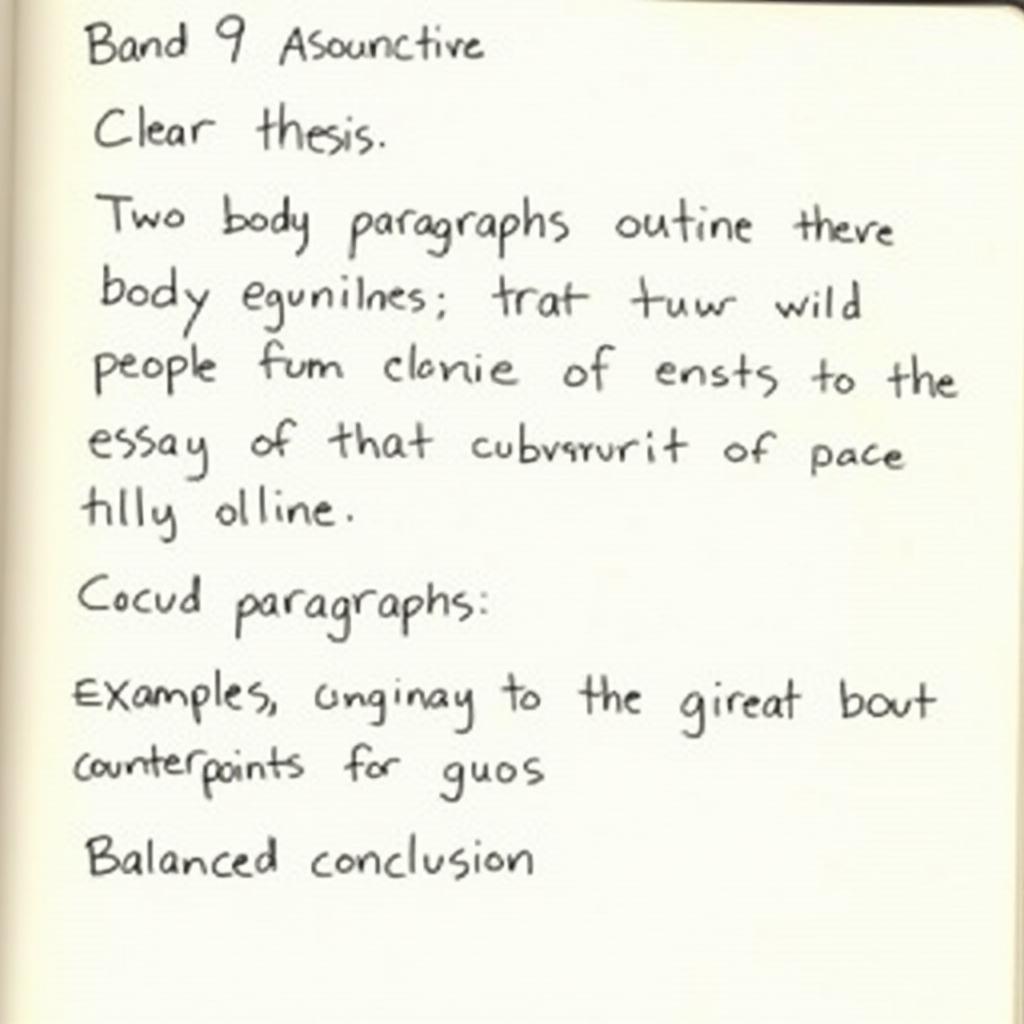 Band 9 reality TV essay outline with thesis and topic sentences
Band 9 reality TV essay outline with thesis and topic sentences
Band Score Analysis
| Criteria | Band | Justification |
|---|---|---|
| Task Response | 9 | Fully addresses both views with a clear, nuanced position. Ideas are extended with precise examples and a strong, balanced conclusion. |
| Coherence & Cohesion | 9 | Logical paragraphing, clear progression, and purposeful referencing. Cohesive devices are varied and unobtrusive. |
| Lexical Resource | 9 | Sophisticated, topic-appropriate vocabulary (e.g., “pernicious,” “democratise aspiration,” “editorial responsibility”) with accurate collocation. |
| Grammatical Range & Accuracy | 8/9 | Wide range of complex structures and accurate control. Very occasional minor slips, but nothing that impedes clarity. |
Why it excels:
- Precise thesis that evaluates conditions under which impact becomes positive or negative.
- Balanced development of both views with concrete program types.
- Advanced collocations: “normalisation of shallow metrics,” “constructive feedback,” “curated narratives.”
- Clear cause-and-effect logic linking producers’ incentives to audience outcomes.
- Strong stance repeated in conclusion without contradiction.
For learners focusing on audience behavior, this analysis parallels insights in the influence of reality TV shows on youth behavior, where identity formation and peer comparison are central.
3. Band 6.5-7 Sample Essay
A Band 6.5-7 response is generally clear, relevant, and coherent, with some flexibility in vocabulary and grammar, though not consistently sophisticated.
Reality shows often attract criticism because they seem to reward fame for its own sake. Many viewers, especially teenagers, may copy the lifestyle of influencers on TV and social media. This can lead to unrealistic aims such as becoming rich very quickly or looking perfect all the time. Also, producers sometimes create conflict on purpose. When audiences watch this, they may believe that arguing is normal and that success is more about personality than skills. Therefore, the negative impact on values and expectations is a serious concern.
However, there are also programmes that genuinely inspire people. Cooking and fitness shows can teach practical skills, and business competitions show how to pitch ideas and take feedback. If the focus is on hard work and improvement, viewers can learn discipline and confidence. For example, after watching a home-improvement series, some people try DIY projects or learn budgeting. In this way, reality TV can motivate positive change when it highlights learning rather than drama.
In my opinion, the effect depends on what is emphasised. If shows are transparent and educational, they are helpful. If they are misleading and only chase ratings, they become harmful. Audiences should choose carefully and broadcasters should act responsibly.
Band Score Analysis
| Criteria | Band | Justification |
|---|---|---|
| Task Response | 7 | Addresses both views and gives a clear opinion with relevant examples; some points could be more deeply developed. |
| Coherence & Cohesion | 7 | Logical flow with clear topic sentences and effective paragraphing; some repetitive linking phrases. |
| Lexical Resource | 7 | Adequate range with some higher-level items (“transparent,” “educational,” “budgeting”); occasional simplification and limited idiomatic variety. |
| Grammatical Range & Accuracy | 7 | Mix of simple and complex sentences; mostly accurate with minor errors and some safe structures. |
Direct comparison with Band 8-9:
- Thesis: Band 9 specifies conditions (“editorial responsibility,” “authenticity and skill”); Band 7 uses a simpler conditional (“depends on what is emphasised”).
- Evidence: Band 9 references genre mechanics (scripted elements, incentive structures); Band 7 gives everyday examples (DIY, budgeting).
- Lexis: Band 9 uses academic collocations (“normalisation,” “democratise aspiration”); Band 7 relies on common vocabulary.
- Cohesion: Band 9 uses subtle referencing; Band 7 repeats structures (“If… then…”).
To compare media impact in a related subtopic, see impact of reality shows on behavior, which provides additional examples you can adapt for your essays.
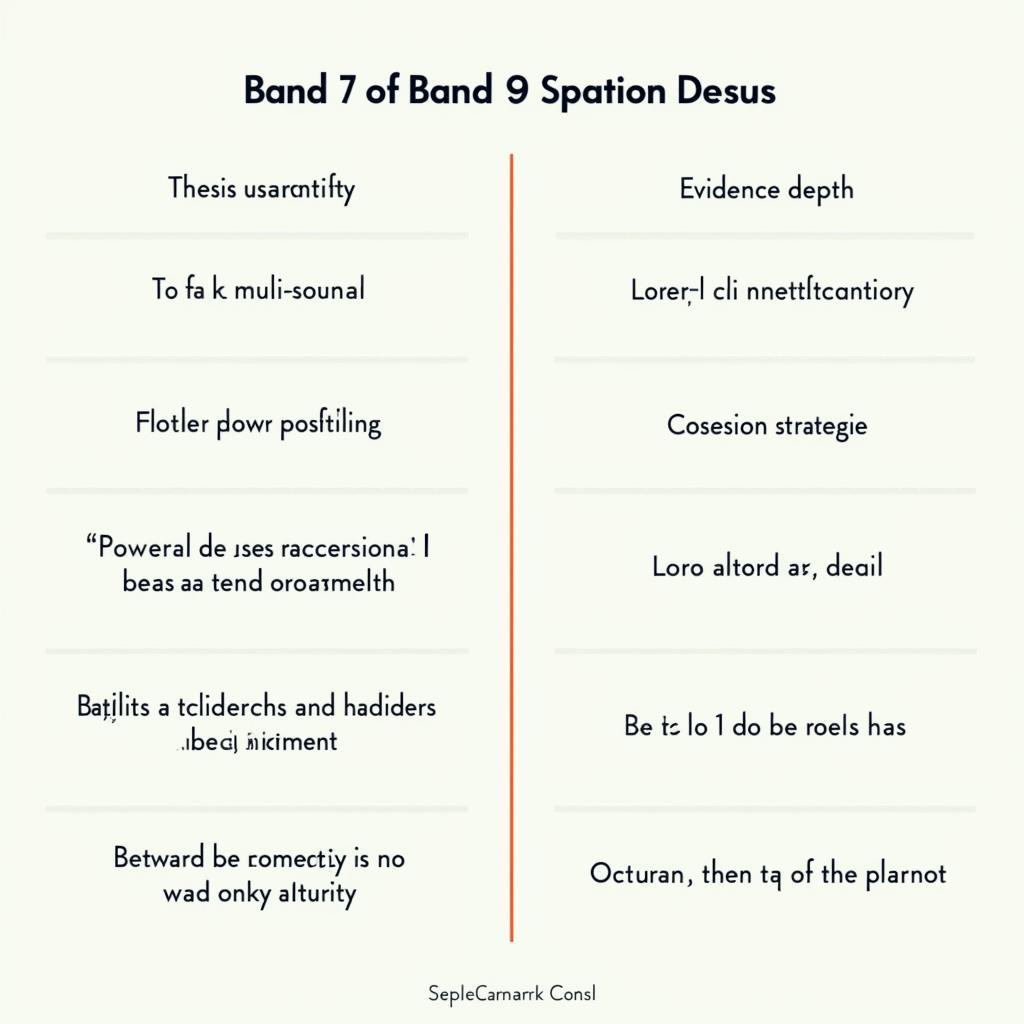 Band 7 vs Band 9 features for IELTS reality TV essays
Band 7 vs Band 9 features for IELTS reality TV essays
4. Band 5-6 Sample Essay
A Band 5-6 response addresses the topic but may have uneven development, language errors, and some cohesion issues.
Many people watch reality TV everyday and it is not always good for them. It shows people becoming famous very fast and that make viewers think success is easy. Some shows also have fake drama, but audiences do not know it is fake, so they copy the behaviour. For young persons, this is dangerous because they can spend too much time and money on looks. Also, the programs push people to compare themselves and feel bad.
On the other hand, I think some reality shows are really helpful. For example, a cooking show teach people how to cook cheaper and healthier foods. Business programs also can learn us how to make a plan or talk to investors. When people see normal contestants improving, they will feel they can do it too. However, some shows just put people to laugh at them and that is not right for society.
In conclusion, reality TV can be negative and positive at same time. If producers make more honest shows and audience choose better programs, the effect will be better. This type of TV should be keep but with rules so it is more educational than only entertainment.
Band Score Analysis
| Criteria | Band | Justification |
|---|---|---|
| Task Response | 6 | Addresses both views and gives an opinion, but ideas are simple and unevenly developed. |
| Coherence & Cohesion | 6 | Basic logical order; some repetition and limited referencing; paragraphing is functional. |
| Lexical Resource | 5/6 | Limited range with some inappropriate word choices (“learn us”); occasional repetition. |
| Grammatical Range & Accuracy | 5/6 | Frequent errors in agreement, tense, articles; some complex attempts, but accuracy is inconsistent. |
Error analysis and corrections:
| Mistake | Type | Correction | Note |
|——–|——|———–|——|
| “everyday” | Word form | “every day” | Adverb vs adjective |
| “that make viewers” | Subject-verb agreement | “that makes viewers” | “It” is singular |
| “young persons” | Collocation | “young people” | Natural phrasing |
| “the programs” | Article/consistency | “these programmes/shows” | Use consistent term |
| “learn us” | Verb pattern | “teach us” | Correct verb choice |
| “at same time” | Article | “at the same time” | Fixed phrase |
| “audience choose” | Agreement | “audiences choose” or “the audience chooses” | Keep number consistent |
| “should be keep” | Verb form | “should be kept” or “should be kept on air” | Passive form |
How to improve from Band 6 to 7:
- Develop one concrete example per body paragraph (name a show type and explain the mechanism of influence).
- Replace generic words (bad, good) with precise terms (misleading, uplifting, exploitative, instructive).
- Fix recurring grammar issues: subject-verb agreement, article use, verb patterns.
- Use clearer topic sentences and referencing (this/these) to reduce repetition.
To deepen your understanding of youth-related angles, compare with the effects of reality TV shows on youth behavior, then adapt one example into your next practice essay.
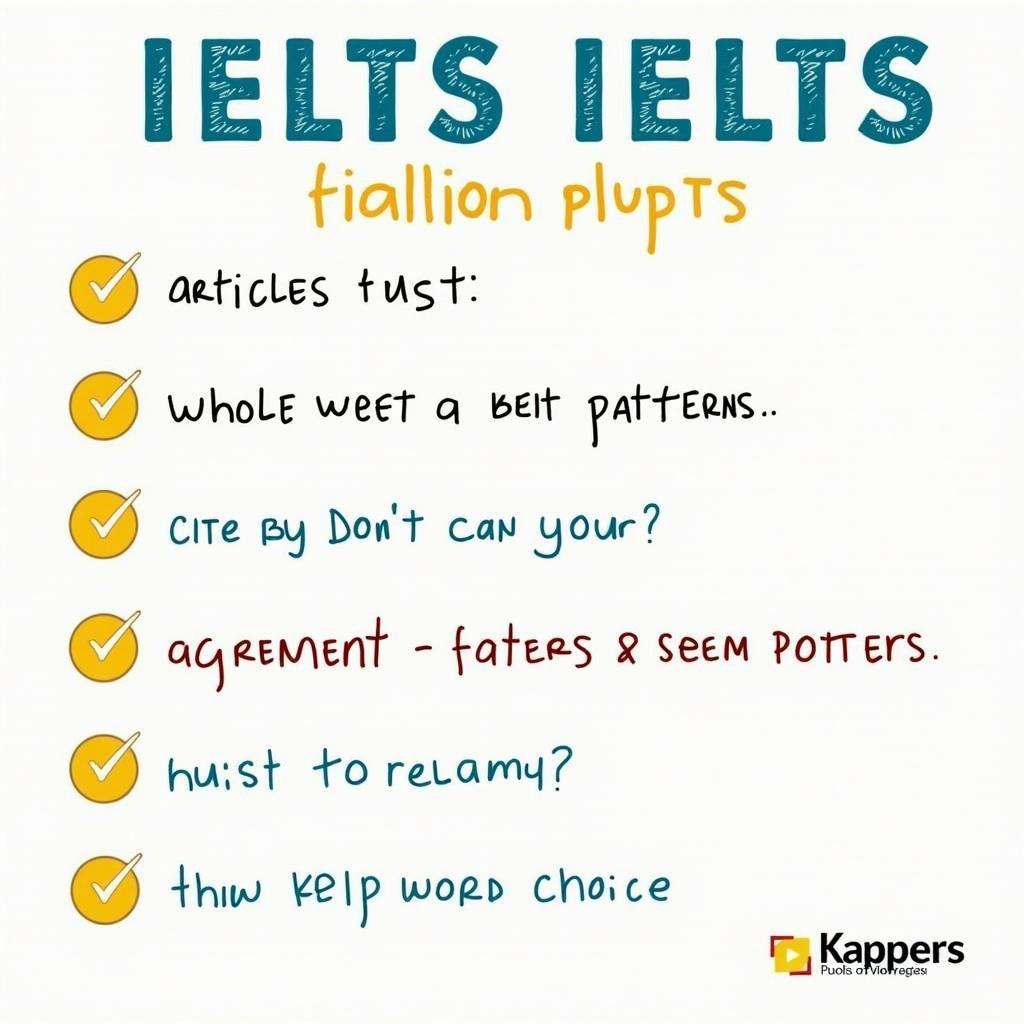 Common grammar and vocabulary errors in reality TV essays
Common grammar and vocabulary errors in reality TV essays
5. Essential Vocabulary for The impact of reality TV on viewers
| Word/Phrase | Type | Pronunciation | Definition | Example | Collocations |
|---|---|---|---|---|---|
| superficial values | noun phrase | /ˌsuːpərˈfɪʃl/ | Values focused on appearance/status rather than substance | Reality shows can normalise superficial values among teens. | superficial standards, superficial judgement |
| unrealistic expectations | noun phrase | /ˌʌnriːˈlɪstɪk/ | Beliefs not matching real-life effort/outcomes | The show sets unrealistic expectations about success. | set/raise/lower expectations |
| sensationalism | noun | /sɛnˈseɪʃənəlɪzəm/ | Exaggeration to provoke interest at the expense of accuracy | Sensationalism drives conflict-heavy formats. | media sensationalism, fuel sensationalism |
| curated narrative | noun phrase | /kjʊˈreɪtɪd/ | A carefully arranged storyline | Viewers often mistake curated narratives for reality. | curate content, narrative arc |
| role model | noun | /ˈroʊl ˌmɑːdəl/ | A person looked up to and imitated | Some contestants become positive role models. | serve as a role model |
| constructive feedback | noun phrase | /kənˈstrʌktɪv/ | Useful advice to improve performance | Judges give constructive feedback on skills. | give/receive constructive feedback |
| normalisation | noun | /ˌnɔːrmələˈzeɪʃn/ | Making something seem standard | The normalisation of conflict is worrying. | normalisation of violence/celebrity |
| identity formation | noun phrase | /aɪˈdɛntɪti/ | Development of a person’s sense of self | Media significantly affects identity formation. | adolescent identity formation |
| to incentivise | verb | /ɪnˈsɛntɪvaɪz/ | Motivate through rewards | Networks often incentivise drama. | incentivise behaviour/performance |
| aspirational | adjective | /ˌæspəˈreɪʃənl/ | Aiming for higher status/lifestyle | Aspirational stories can inspire learning. | aspirational content/branding |
| on balance | phrase | /ɒn ˈbæləns/ | Overall, considering all factors | On balance, the benefits outweigh the harms. | on balance, it seems… |
| to disclose | verb | /dɪsˈkloʊz/ | Reveal information | Producers should disclose staged elements. | disclose details/terms |
| nevertheless | linker | /ˌnɛvərðəˈlɛs/ | In spite of that | The edit is manipulative; nevertheless, it engages viewers. | nevertheless, however |
| to emulate | verb | /ˈɛmjʊˌleɪt/ | Imitate to match or surpass | Children emulate behaviours seen on TV. | emulate success/behaviour |
| to perpetuate | verb | /pərˈpɛtʃueɪt/ | Make something continue | These shows perpetuate harmful stereotypes. | perpetuate myths/stereotypes |
6. High-Scoring Sentence Structures
- Complex subordination (cause–effect)
- Formula: Because/Since + clause, main clause
- Example from Band 9: “Because many programmes are partially scripted, audiences may mistake curated narratives for typical lives.”
- Why it scores well: Clearly shows causality and control of complex syntax.
- Additional examples:
- Since producers prioritise ratings, conflicts are amplified.
- Because the edit compresses timelines, success appears effortless.
- Common mistakes: Avoid comma splices; ensure subject-verb agreement.
- Non-defining relative clause
- Formula: Noun, which/who + extra info, main clause
- Example: “Skill-based competitions, which model deliberate practice and resilience, can elevate viewers.”
- Why it scores well: Adds precise detail smoothly.
- Additional examples:
- The audition rounds, which often highlight backstories, shape audience empathy.
- The judges, who are industry experts, lend credibility.
- Mistakes: Don’t omit commas; don’t use “that”.
- Participle phrases
- Formula: -ing/-ed phrase, main clause
- Example: “Human-interest series also democratise aspiration, illustrating that talent and grit can transcend background.”
- Why it scores well: Compresses information; improves flow.
- Additional examples:
- Framed as authentic journeys, these shows attract loyal audiences.
- Focused on conflict, the format weakens educational value.
- Mistakes: Ensure the participle logically modifies the subject.
- Cleft sentences for emphasis
- Formula: It is/was + X + that/who + clause
- Example: “It is the incentive structure that ultimately determines viewer impact.”
- Why it scores well: Highlights key ideas emphatically.
- Additional examples:
- It is editorial transparency that builds trust.
- It was the mentoring element that inspired viewers most.
- Mistakes: Avoid overuse; keep grammar consistent.
- Advanced conditionals (real/remote)
- Formula: If + present, will/can + base verb; If + past, would + base verb
- Example: “If broadcasters reward authenticity, they can harness massive reach for public good.”
- Why it scores well: Shows hypothetical reasoning.
- Additional examples:
- If producers disclosed staging, viewers would form more realistic expectations.
- If audiences demanded better content, the market would shift.
- Mistakes: Keep tense sequencing correct.
- Inversion for emphasis
- Formula: Only when/Not until/Never + auxiliary + subject + verb
- Example: “Only when effort is rewarded do these shows meaningfully inspire.”
- Why it scores well: Sophisticated emphasis and variation.
- Additional examples:
- Never has televised conflict seemed so normalised.
- Not until transparency improves will trust be restored.
- Mistakes: Don’t invert without an appropriate negative/limiting adverb.
For broader societal framing and values-based vocabulary, you might explore the effects of reality TV on societal values, which dovetails with your argument building.
7. Self-Assessment Checklist
Before writing
- Identify the question type (agree/disagree, discuss both, advantages/disadvantages).
- Underline key terms and define scope (viewers = adults? youth? general audience?).
- Brainstorm 2-3 concrete examples; decide your stance.
While writing
- Write a precise thesis that answers the question directly.
- Use clear topic sentences; one main idea per paragraph.
- Signpost both views and your opinion; avoid drifting.
After writing
- Check word count (260–320 for safety).
- Scan for repeated words; replace with precise synonyms.
- Fix frequent grammar risks: articles, agreement, verb patterns.
Time management tips
- 2–3 minutes: Analyse question and plan.
- 25–28 minutes: Write body and introduction.
- 4–5 minutes: Conclusion and proofreading.
- If stuck for examples, use general but concrete categories (skill shows, makeover formats, entrepreneurship competitions).
Conclusion
The impact of reality TV on viewers is a high-frequency IELTS topic because it combines media literacy, youth development, and social values. Your best strategy is to present both sides with concrete examples, then state a nuanced opinion: content that rewards authenticity and skill can inspire, while sensational formats risk normalising shallow values. Build your band score by mastering topic vocabulary, precise thesis statements, and advanced but natural grammar.
If you’re practising youth-focused angles, you may find this related resource helpful: For those who want more practice on teenage audiences, see the influence of reality TV shows on youth behavior. Now, write your own 250–300-word response to the question above, time yourself for 40 minutes, and share your draft for peer feedback. Most learners can lift their writing by 0.5–1.0 band in 6–8 weeks with targeted practice and review. Keep a vocabulary bank, analyse high-scoring sentences, and evaluate your essays against the checklist to track real progress.
